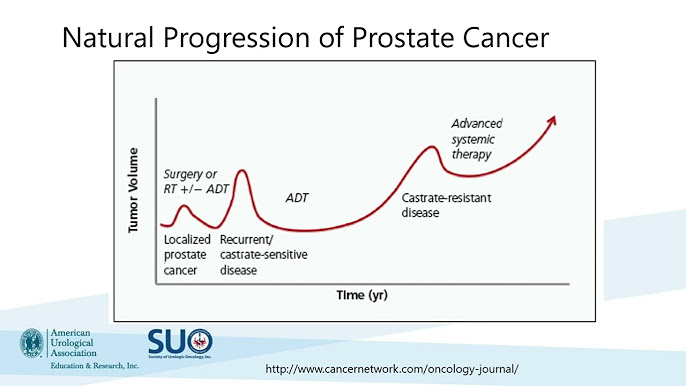Some Of Best Prostate Cancer Hospital In Mumbai
Some Of Best Prostate Cancer Hospital In Mumbai
Blog Article
Prostate Cancer Therapy: Surgical and Non-Surgical Approaches Explained
When faced with a prostate cancer cells medical diagnosis, the variety of treatment choices can seem frustrating. This extensive overview aims to lose light on the complexities of prostate cancer cells therapy, offering insights into the details of each approach to encourage people in making notified selections regarding their wellness.
Surgical Therapy Choices
When thinking about medical treatment options for prostate cancer, patients and health care providers commonly consider the advantages and dangers linked with various treatments. This treatment is frequently advised for clients with localized prostate cancer and uses the capacity for a remedy.
One more medical choice is robotic-assisted laparoscopic prostatectomy, a minimally intrusive treatment that makes use of a robot system to assist the surgeon in removing the prostate. This strategy can lead to much less blood loss, shorter healthcare facility remains, and quicker recuperation times compared to conventional open surgical procedure. It likewise carries the threat of issues such as infection and injury to surrounding organs.
Ultimately, the selection of medical treatment for prostate cancer relies on different factors consisting of the phase of the cancer, the individual's total wellness, and their preferences regarding prospective negative effects and healing times. Consulting with a multidisciplinary group consisting of urologists, oncologists, and radiation oncologists can help people make educated choices regarding the most suitable surgical approach for their individual case.

Non-Surgical Treatment Options
Taking into consideration alternatives to surgical treatments, non-surgical treatment options for prostate cancer offer individuals extra opportunities for managing the illness while reducing potential medical risks. One non-surgical method is Active Monitoring, where clients with low-risk prostate cancer are monitored very closely via regular check-ups, blood examinations, and biopsies, without undertaking instant treatment. This method aims to prevent unnecessary therapy and its affiliated negative effects, such as urinary incontinence and impotence.
An additional non-surgical choice is Radiation Therapy, which utilizes high-energy rays to kill cancer cells (best prostate cancer doctor). This treatment can be supplied on the surface using a machine (External Beam Radiation) or internally with little contaminated pellets positioned near the growth (Brachytherapy) Radiation therapy can be utilized as a primary treatment or in mix with various other treatments, such as hormonal agent treatment
In Addition, Hormone Therapy is a non-surgical strategy that intends to reduce the levels of male hormonal agents (androgens) in the body, as these hormonal agents can fuel the development of prostate cancer cells. By decreasing or obstructing androgen degrees, hormone therapy can decrease cancer progression and alleviate signs and symptoms in advanced instances.
Robotic-Assisted Surgical Treatment for Prostate Cancer Cells

One of the vital benefits of robotic-assisted surgical procedure for prostate cancer is its ability to decrease the danger of complications and side impacts frequently connected with open surgical treatment, such as blood loss, pain, infection, and prolonged recuperation times. Overall, robotic-assisted surgical treatment stands for an innovative strategy to prostate cancer cells treatment that integrates technological innovations with surgical knowledge to enhance patient results.
Radiation Therapy for Prostate Cancer Cells
Utilizing innovative radiation innovation, radiation therapy plays a critical role in the thorough therapy of prostate cancer cells. Radiation treatment makes use of high-energy radiation to ruin cancer cells and diminish growths. It is a typical treatment option for prostate cancer, either as a main treatment or in mix with surgical procedure, hormonal agent therapy, or radiation treatment.
There are two primary kinds go to my site of radiation therapy made use of for prostate cancer cells: external beam of light radiation therapy (EBRT) and brachytherapy. In EBRT, a device delivers radiation from outside the body to the prostate. This treatment is typically given over several weeks, with daily sessions lasting just a few mins (Best prostate cancer doctor in Mumbai). Brachytherapy involves putting contaminated seeds or sources directly right into the prostate near the malignant cells. These seeds send out radiation that kills the cancer cells in time.
Radiation therapy for prostate cancer cells is highly efficient, with high cure rates, particularly for localized cancer cells. It is additionally a valuable option for clients that may not be suitable candidates for surgical procedure. Like any treatment, radiation therapy might have negative effects, such as urinary system problems, tiredness, and skin irritability, yet these are usually momentary and manageable.
Hormonal Agent Therapy for Prostate Cancer
Hormonal agent treatment is a commonly used therapy approach for prostate cancer monitoring. Prostate cancer cells is typically fueled by the man hormone testosterone. Hormone treatment, additionally called androgen starvation treatment, intends to minimize testosterone levels in the body or obstruct the hormonal agent's effects on the prostate cancer cells, hence slowing down the condition's development. This therapy is particularly efficient in sophisticated phases of prostate cancer, where surgery or radiation therapy might not suffice.
There are various kinds of hormone therapy for prostate cancer, consisting of medicines that lower testosterone levels (such as luteinizing hormone-releasing hormone agonists and antagonists), or medicines that obstruct testosterone from reaching cancer cells (like anti-androgens) Hormone treatment can be used alone or in combination with various other treatments like radiation therapy, depending on the stage and aggression of the cancer cells.
While hormone treatment can successfully control prostate cancer development, it may include side effects such as warm Read Full Article flashes, loss of libido, impotence, and osteoporosis - Best prostate cancer hospital in India. Routine tracking and conversations with doctor are crucial to take care of these adverse effects and make certain the therapy's effectiveness
Verdict
Finally, the therapy choices for prostate cancer include medical and non-surgical techniques such as robotic-assisted surgical procedure, radiation therapy, and hormonal agent treatment. Each technique has its own benefits and dangers, and the option of treatment depends on different aspects such as the phase of cancer cells and general health and wellness of the client. It is essential for patients to review these options with their doctor to identify one of the most ideal course of activity for their individual circumstance.

Using advanced radiation modern technology, radiation therapy plays an important duty in the extensive therapy of prostate cancer cells. It is a common therapy option for prostate cancer cells, either as a primary treatment or in mix with surgical treatment, hormone treatment, or radiation treatment.
Radiation therapy for prostate cancer is highly efficient, with high cure rates, especially for local cancer.Hormonal agent therapy is a frequently made use of treatment method for prostate cancer administration.In conclusion, the therapy options for prostate cancer cells consist of medical and non-surgical methods such as robotic-assisted surgical treatment, radiation treatment, and hormonal agent therapy.
Report this page